Automated data exchange in Prüm II: The EU’s securitisation mindset keeps encroaching on our fundamental rights
The agreement on automated data exchange for police cooperation, known as ‘Prüm II aligns with a broader EU trend of laws prioritising national security over human rights. The final text of this regulation has insufficient fundamental rights safeguards and could even encourage more member states to adopt facial recognition technology. The EU Parliament must reject the current Prüm II Regulation in the upcoming plenary vote.
Filter resources
-
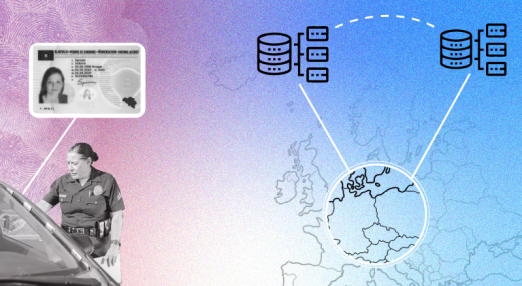
Automated data exchange in Prüm II: The EU’s securitisation mindset keeps encroaching on our fundamental rights
The agreement on automated data exchange for police cooperation, known as ‘Prüm II aligns with a broader EU trend of laws prioritising national security over human rights. The final text of this regulation has insufficient fundamental rights safeguards and could even encourage more member states to adopt facial recognition technology. The EU Parliament must reject the current Prüm II Regulation in the upcoming plenary vote.
Read more
-
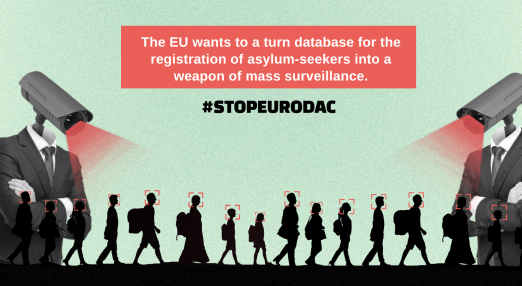
Civil society calls for an end to the expansion of EU’s EURODAC database
Civil society is calling for an end to the expansion of EURODAC, the EU database for the registration of asylum-seekers. EURODAC is being transformed into an expansive, violent surveillance tool that will treat people seeking protection as crime suspects.
Read more
-

Development of EU border police watchlist is “progressing well”
The development of a new watchlist for “identifying connections” between people seeking authorisation to travel to the EU and terrorist or criminal suspects is “progressing well”, according to a Europol report obtained by EDRi member Statewatch.
Read more
-

Europol data deals with violent police forces need “strong data protection safeguards”
Proposed data-sharing deals between Europol and five states in Central and South America needs explicit safeguards if they are to uphold fundamental rights, the European Data Protection Supervisor said at the beginning of May. Police forces in those states have brutal records of violence and torture.
Read more
-

Open letter: e-Evidence package lacks appropriate safeguards, EU Parliament must reject it
Civil society, doctors, lawyers and journalists associations and internet service providers are calling on MEPs to reject the so-called “e-Evidence” package during the plenary vote on June 13 because the proposed system of cross-border access to data in criminal matters would severely undermine fundamental rights.
Read more
-
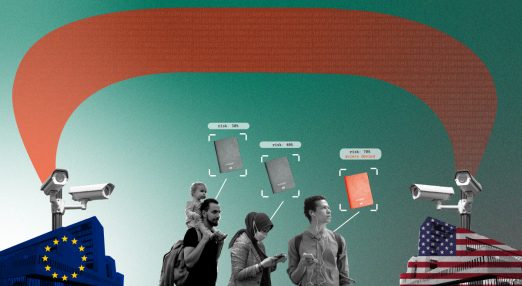
USA border plan requires “continuous and systematic” transfers of biometric data
Last year, it was revealed that the USA planned to launch Enhanced Border Security Partnerships (EBSPs) with other states around the world, seemingly targeting the EU, UK and Israel first. These would involve “continuous and systematic” transfers of biometric data to the USA for the purposes of immigration and asylum vetting, says a recent Council of the EU document obtained by Statewatch.
Read more
-

€1.2 billion GDPR fine for Meta over US mass surveillance
Today, a decade-long (2013 - 2023) case on Meta's involvement in US mass surveillance has led to a first direct decision. Meta must stop any further transfers of European personal data to the United States, given that Meta is subject to US surveillance laws (like FISA 702). The European Data Protection Board (EDPB) had largely overturned the Irish Data Protection Commission's (DPC) decision, insisting on a record fine and that previously transferred data must be brought back to the EU.
Read more
-
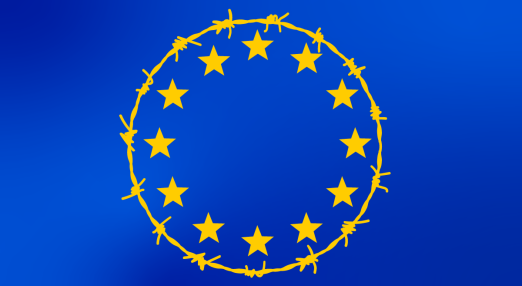
EU plan for international border data-sharing system “should not proceed”
The European Commission’s plan for a “security-related information sharing system between frontline officers in the EU and key partner countries” should be scrapped, says a paper signed by 10 organisations, including Statewatch, who warn that it may aid political repression and underpin human rights violations.
Read more
-
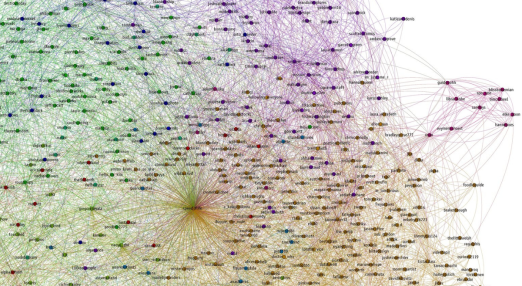
“Social media profiles and phone contacts” used as proof of identity for deportations
Thirteen non-EU countries sometimes accept “social media profiles and phone contacts” as evidence of identity for the purpose of deportations, according to an internal European Commission assessment of third country cooperation on readmission.
Read more
-

Position Paper: EU’s proposed health data regulation ignores patients’ privacy rights
EDRi’s new position paper outlines how the European Commission’s proposal for a European Health Data Space, in an attempt to make use of people’s health data, would sabotage the rights of patients to make decisions about their private medical information.
Read more
-

e-Evidence compromise blows a hole in fundamental rights safeguards
In December 2022, the Council and the European Parliament agreed on a final compromise text on the so-called ‘e-Evidence’ proposals. With major concessions given to the Member States’ position, the results of these trilogues negotiations are of bad omen for people’s rights and freedoms.
Read more
-

“e-Evidence” trilogues: what’s left of fundamental rights safeguards?
In an open letter addressed to policymakers, an EDRi-led coalition of digital rights, lawyers, journalists, media organisations and internet service providers associations are ringing the alarm bell. We warn against the foreseen framework that could seriously endanger freedom of expression, privacy rights and the right to a fair trial.
Read more
